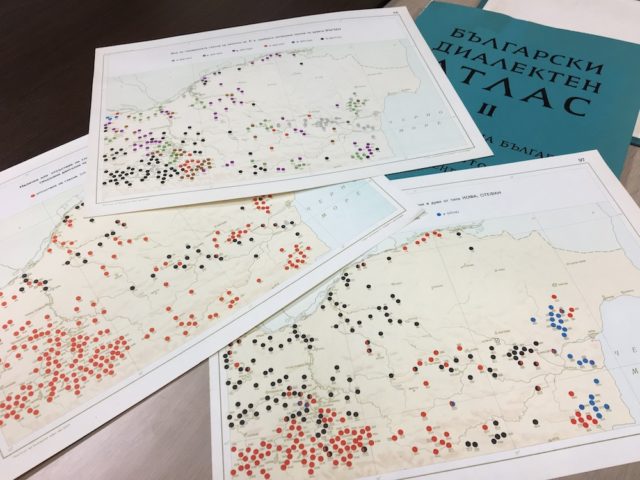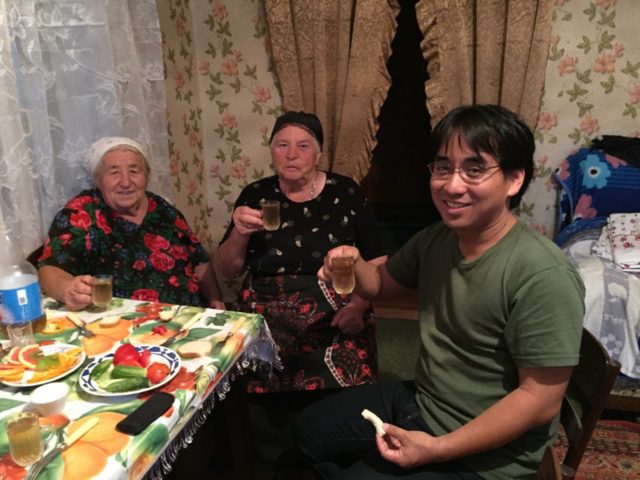Profile
- Research Subject
Grammar of Slavic Languages (especially Russian and Bulgarian), Language of Bulgarian Minorities outside Bulgaria (Language contact and language change)
- Research Fields
- Russian Linguistics, Slavic Linguistics
- Faculty - Division / Research Group / Laboratory
- Division of Humanities / Research Group of Linguistics / Laboratory of Linguistics
- Graduate School - Division / Department / Laboratory
- Division of Humanities / Department of Linguistics / Laboratory of Linguistics
- School - Course / Laboratory
- Division of Humanities and Human Sciences / Course of Linguistics and Literature / Laboratory of Linguistics
- Contact
TEL: +81-11-706-3050
Email: ksugai(at)let.hokudai.ac.jp
Replace “(at)” with “@” when sending email.Foreign exchange students who want to be research students (including Japanese residents) should apply for the designated period in accordance with the “Research Student Application Guidelines”. Even if you send an email directly to the staff, there is no reply.- Related Links
Lab.letters


Looking at society from the perspective of language contact:
Where two languages mingle
The Republic of Moldova is a multi-ethnic country inhabited by Moldovans, Ukrainians, Russians, Gagauzes and Bulgarians. Ethnic Bulgarian minority who live there are bilingual in Bulgarian and Russian. They speak Russian as a common language between ethnicities at workplaces and schools, while using Bulgarian at home and among friends.
My research focuses on grammatical analysis of language change caused by the language contact of Bulgarians in a language environment where two languages lay side by side, and I have also attempted to analyze this issue from the perspective of sociolinguistics. I will continue gathering information via on-site interviews with locals, thereby paying minute attention to the relationship between humans and languages/society.
Conducting visible linguistic research:
Pursuing your interest
These modern times enable you to acquire copious amounts of linguistic data even in a laboratory setting, but what I especially intend to cherish is “visible linguistic research.” When I play back the sound source recorded at the time of an on-site survey, I can immediately remember the dialogue with consultants, their smiling faces and even the taste of the meal served to me, which makes me feel as if I was right there talking to them. I find the humanity fascinating and cannot stop visiting field work sites even now. In addition, the Slavic-Eurasian Research Center at Hokkaido University boasts a number of professors whose research areas overlap and an abundance of literature, making research at the Graduate School more solid.
I urge you to pursue your curiosity to gain knowledge without hesitation. The front line of linguistic research varies each day, each moment and it will hinge upon your area of interest what phase you highlight. New buds of possibility can be spotted everywhere.
Message
Needless to say, conducting linguistic research requires a good command of the languages necessary for your research subjects. For instance, you cannot tackle linguistic research on the Russian language without Russian knowledge. If you wish to pursue linguistic research targeting the Russian language, you must first focus on intently studying Russian. When proceeding with language learning, it is important to learn various matters by heart, but at the same time, you are also required to question every aspect of linguistic phenomenon. Trivial questions such as “Isn’t this a bit strange?” or “How can that be?” may provide clues to shedding light on the true nature of the language or unraveling the mechanisms behind it.
In fact, the Russian language is extremely instrumental when it comes to understanding the Slavic world. Since Slavic languages are quite similar to each other, those who have studied Russian can master other Slavic languages such as Ukrainian, Polish, Czech, Bulgarian and Serbian relatively easily. Learning a Slavic language other than Russian is crucial for the following reasons: you will be able to discover a new Slavic world that differs from Russia; you will be able to take another look at Russian from a comparative perspective, which enables you to deepen your knowledge of Russian as well. That’s why I would like you to be interested in not only Russian but also other Slavic languages.




